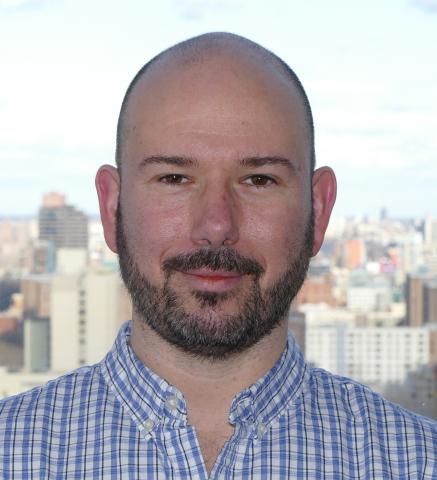Paz Polak, Ph.D.
Assistant Professor
Department of Oncological Sciences
Icahn School of Medicine at Mount Sinai Hospital
Hess Center for Science and Medicine
Seminar Information

Clonal expansion in human tissue is pervasive and increases with age. A minority of these clones may progress to cancer, but the majority will not, although they may lead to other diseases. The main driver of these evolutionary processes in the human body is DNA mutations acquired through mutagenic and DNA repair processes. These mutational processes vary between individuals due to genetic background and environmental exposures. In addition, these processes vary between human cell types that are also subject to different exposures of DNA damage. Our work highlights how the chromatin landscape of cell type and replication processes shapes the landscape of mutagenesis along the genome. Using the ROADMAP and IHEC epigenetic consortium we demonstrate that the genome-wide relationship between histone modification marks and somatic mutation rate is so strong that these can identify the cell of origin of normal, pre-cancer, or cancer just from the distribution of mutations along the genome. We and others have found that in general enhancer regions and other regulatory elements of the cell of origin or developmental stages during the evolutionary course are mutational cold spots. These results indicate that DNA repair and mutagenesis are highly correlated with chromatin state. We have also observed that association is the strongest for normal tissues somatic mutations and lower for cancer due to cellular transitions that happen during tumorigeneses. We have extended this analysis to incorporate single-cell data, enabling us to integrate cellular trajectory with mutational processes. On the other hand, despite a general lower single nucleotide mutation rate, a subset of regulatory regions (which contain risk alleles) are enriched among the region's hotspots for structural variants implying that these are drivers of clonal expansion. In summary, leveraging the relationship of the epigenome and somatic mutational processes reveals pressures governing the positive selection of clonal expansion and uncovers cell of origin.
Dr. Polak is currently a Principal Investigator at the Icahn School of Medicine at Mount Sinai Hospital, joining the faculty as an Assistant Professor in November 2017.
Dr. Polak's laboratory focuses on understanding cancer disparities in understudied populations in the US and elsewhere using genomic techniques. The lab studies breast and prostate cancer in African-American and Hispanic patients in NYC, focusing on population differences in mutational processes. The lab also studies why anal precancer lesions in persons with HIV are more aggressive than in uninfected HIV patients.
Paz Polak received his Bachelor of Science degree in Physics and Mathematics from Technion University in Israel and a Master of Science in Applied Mathematics. He received an additional Master of Science in Physics (computational biology) from the Weizmann Institute of Science in Israel. In 2010, Dr. Polak completed his Ph.D. in Computational Biology from the Max Planck Institute in Berlin, Germany. He was a postdoc at Brigham and Women's Hospital in Boston in the laboratory of Shamil Sunyaev. He then worked in Gaddy Getz's laboratory at Massachusetts General Hospital and the Broad Institute of MIT and Harvard.
